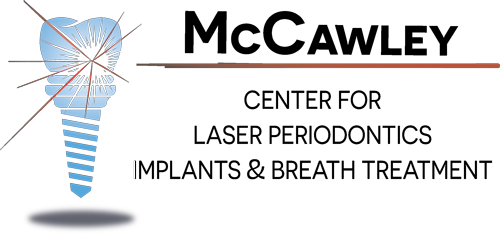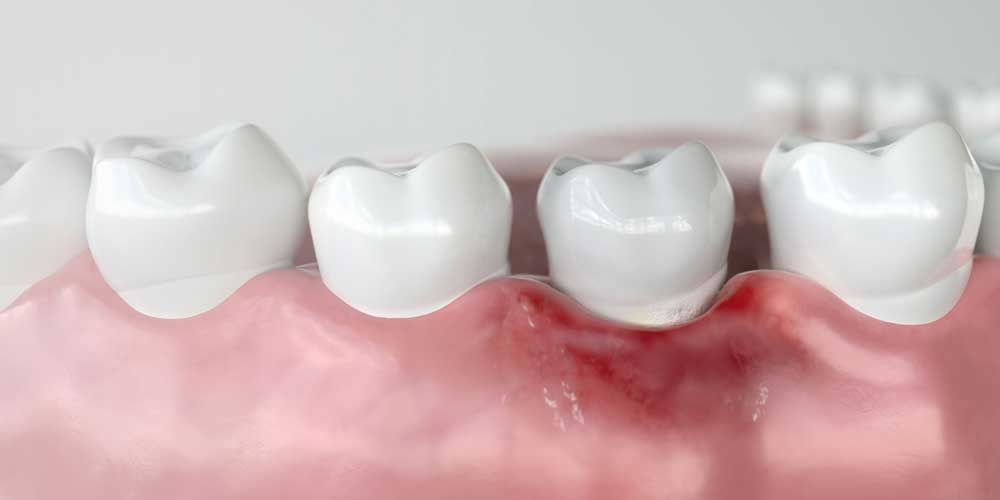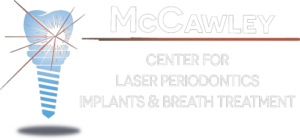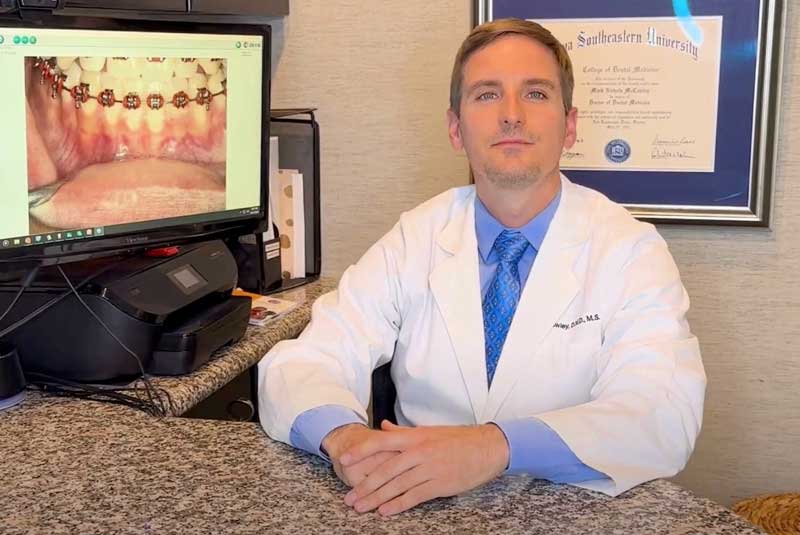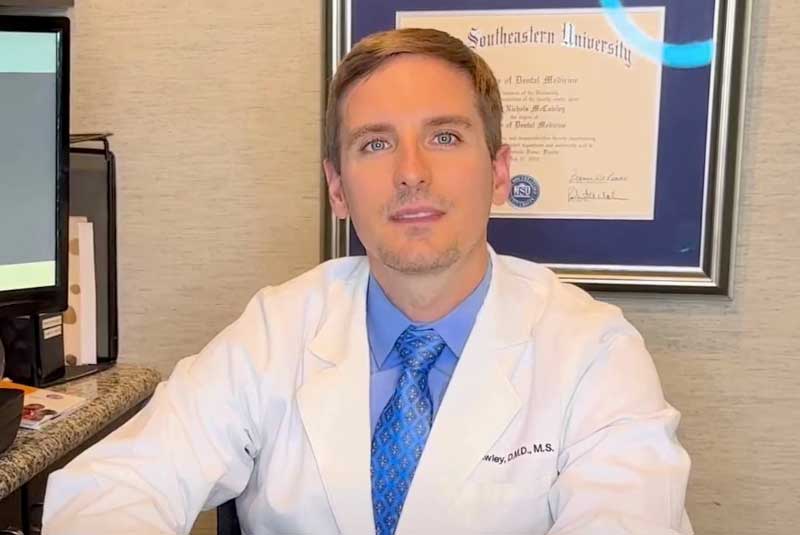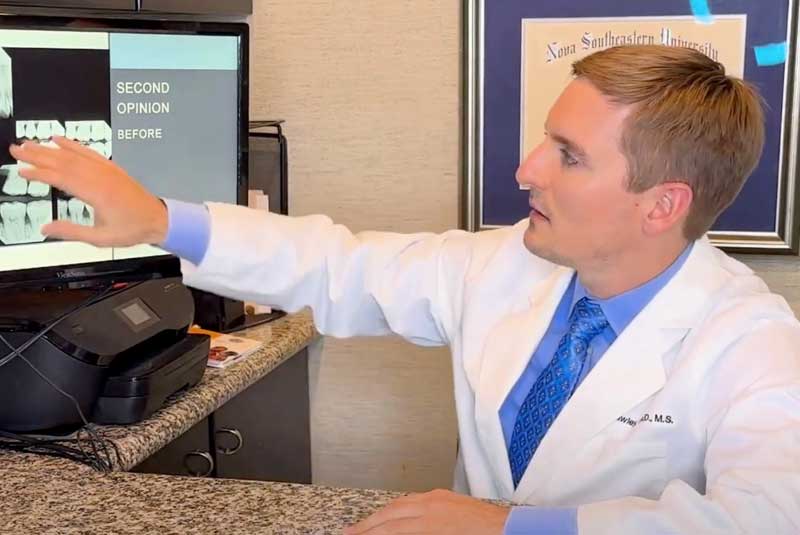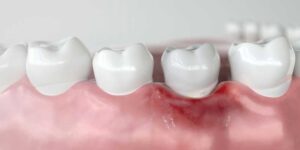
Gum recession is a very prominent issue for many dental patients and because it occurs slowly and gradually it is often not easy to detect. If you start to experience gum recession it would be best if you reached out to your dental professional to seek treatment as soon as possible. Doing so would be very beneficial because gum recession is a major warning side that you may be developing gum disease.
- Gum Disease
Gum disease usually occurs because of a lack of proper oral hygiene. Meaning if you are not engaging in good oral care you are more likely to develop gum disease. Healthy oral hygiene would include brushing and flossing at least twice a day in order to avoid plaque buildup. Also, this lower your chance of having any bacteria buildup below the gumline which can create inflammation.
- Brushing Too Hard
Although, it is important to be sure that you are brushing your teeth twice a day regularly it is also very important to be sure that you are not brushing too hard. This is because when you brush too hard your gumline will overtime start to recede. In order to effectively remove food and bacteria from your teeth you don’t need to brush aggressively. Brushing your teeth roughly negatively impacts your oral health.
- Flossing Too Aggressively
Similar to brushing too hard if you floss to hard you can also inadvertently contribute to developing gum recession. When you floss too aggressively you can accidentally cut into the gum tissue and this then causes receding gums.
Contact Our Office
If you find that you are experiencing gum recession, then it would be very important if you contact our office to have a full examination conducted. Doing so will allow our doctor to examine you and determine if you are suffering from gum recession as well as provide you with the needed treatment.
